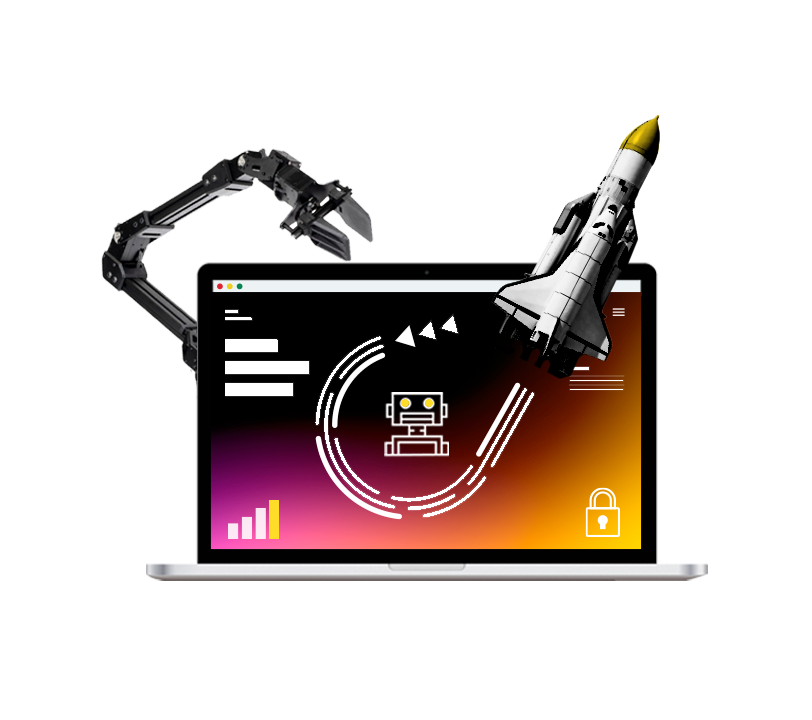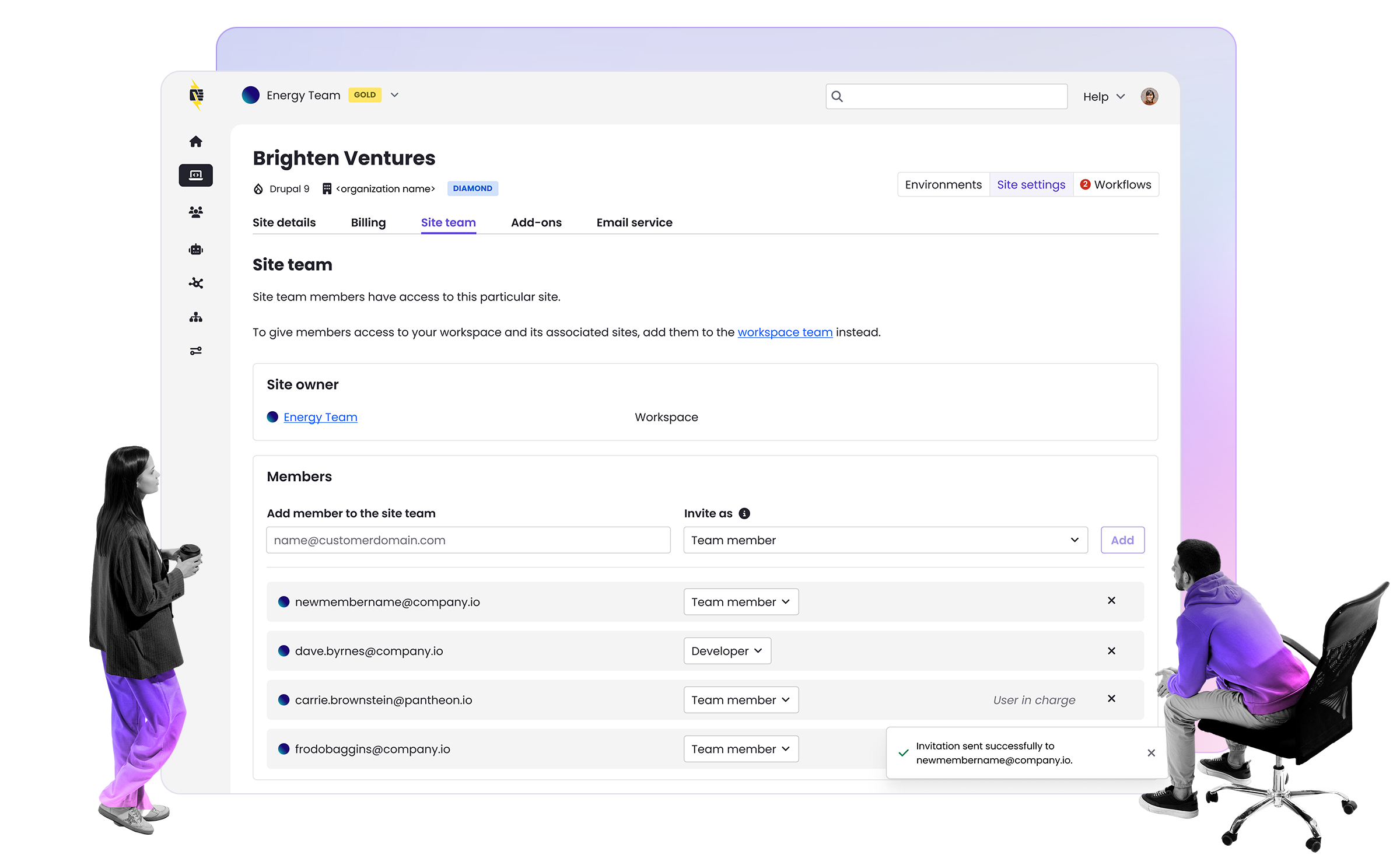Accelerating on Autopilot: 5 Ways to Be More Productive
Image

Like with preventative maintenance on your car, you can’t expect your CMS to deliver peak performance and optimal reliability if you skip your service appointments and don’t maintain it. We can all agree that’s sage advice.
However, applying updates to the CMS, along with its plugins and modules, have historically been a time consuming affair. Yes, it’s necessary, but it also diverts developer time and energy away from innovating and building awesome site features and content. No one loves that. Maintenance is not a great use of precious developer talent, nor your budget. This is why web developers and agencies have been turning to Pantheon’s Autopilot.
Autopilot always keeps your sites up to date and allows machines to automatically detect, perform, test, and deploy updates for WordPress and Drupal CMS solutions. It works by directing robots to specified CMS sites on user-defined schedules. And since Autopilot is extremely customizable, developers can easily direct robots to exclude site theme code or customized plugins for specific clients.
And best of all — if you are a Pantheon user, you likely already have access to Autopilot. It is available in the Dashboard for all paying customers.
1. Save Time, Be Productive
Autopilot has allowed me to refocus my time on higher value tasks and critical production work that produces more billable hours and income for the agency.
- Alex Vaquez, DigiSavvy principal and co-founder
Launching in early 2021, Pantheon invited a number of early users to test Autopilot. DigiSavvy, a boutique digital marketing agency focusing on custom WordPress development and marketing automation based in Los Angeles, reported saving more than 50 hours over the course of one month by using Autopilot.
“As someone who is juggling multiple projects, it’s difficult to prioritize doing updates and maintenance work when you have fires to put out or important business development tasks to tend to,” said DigiSavvy principal and co-founder Alex Vasquez. “Autopilot has allowed me to refocus my time on higher value tasks and critical production work that produces more billable hours and income for the agency.”
2. Security in Seconds
95% of websites run on outdated software with known vulnerabilities1. Furthermore, only 12.4% of sites are using the latest major version of their respective CMS2.
Security and compliance are more than just a checkbox. As new standards and regulatory requirements are developed and gain traction in the industry, Pantheon reviews them and adopts the ones that are relevant to our customers, community, and agencies. While this provides confidence and credibility from a hosting perspective, it is equally important to ensure the site itself is secure.
Hackers and cyber-thieves are constantly trying to gain access to sensitive information and computing resources. Without a proactive website security strategy — including monitoring, updating their CMS and plugins/modules — businesses risk the spread and escalation of malware, attacks on other websites, networks, and other IT infrastructures. With Autopilot, users can be confident they are running the latest updates and maintaining a strong security posture in seconds, not hours.
3. Staying Up to Date = Staying Online
Keeping plugins/modules updated can mean the difference between staying online and providing an excellent user experience (UX) or giving visitors a valid reason to go somewhere else. For commerce sites, this may even have long-term ramifications after inadvertently introducing customers to a competitor. Out of date and incompatible plugins can create severe security vulnerabilities, compatibility issues, and they often accrue technical debt, at that.
For agencies, keeping the CMS and related plugins updated helps build trust between you and your customers. You don’t want to remind them that their agency isn’t keeping them safe every time they log in to their CMS.
With Autopilot, users and agencies can identify and automatically update critical core WordPress and Drupal CMS releases, as well as their associated plugins. Sites no longer need to fall behind on features, compliance, security, plugins, and themes.
4. Focus on Innovation Instead of Maintenance
Currently we are managing portfolios of 100s of sites that we run once-a-month updates on ... from simple to complex, this reduces implementation time.
- Mindgrub, Award-winning Digital Agency
Teams are spending significant time on routine maintenance. How often have you wanted to add a cool new feature, launch an interactive campaign, or design an innovative experience — only to find developers are bogged down with system updates, maintenance, and security patches? By setting desired frequency, type, and destination of updates, you can complete automated tasks quickly and deliver higher value to your customers/users.
For Mindgrub, it meant that Autopilot makes a difference in engineering efforts. “Currently we are managing portfolios of 100s of sites that we run once-a-month updates on ... from simple to complex, this reduces implementation time.”
5. Hands-Off Visual Regression Testing (VRT)
Regression testing isn’t just for developers. With WebOps becoming a team sport, marketers or anyone with eyes for that matter, can play a part in updating websites.
By automatically detecting when new updates are available, Autopilot can perform the updates in an isolated multidev environment, test the updates with automated visual regression testing, and optionally deploy the updates — saving developers hours of time. While the concept of visual regression testing might be unfamiliar to some, it is essentially two pictures side-by-side that you try to spot the differences between. If there aren’t any differences, you are good to go! This tool is especially useful to marketers who intimately know the look and feel of the website. They now can confidently approve updates, ensuring site integrity after updates are performed.
From a site management perspective, Autopilot can automate routine updates across a large portfolio of sites, supporting online collaboration across hybrid working environments, and reducing time for developers and digital experience managers.
Built to Craft Digital Experiences
Pantheon’s Autopilot brings new levels of automation to website management. It keeps sites up to date by automatically detecting, performing, testing, and deploying updates for WordPress and Drupal CMSs in a single, fast workspace environment. Autopilot allows organizations to easily visualize and manage sites, users, traffic, and metrics — to keep website management smooth, scalable, and built to craft digital experiences.
If you'd like to streamline your workflow and free up valuable time for higher priority projects, please speak with us to learn more about Pantheon’s Autopilot.
1.). CyberNews, 95% of websites run on outdated software with known vulnerabilities
2.) Drupal.org, Only 12.4% of sites are using the latest major version of the CMS


